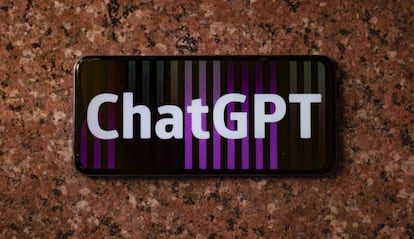The nagging doubts about ChatGPT
The first anniversary of the groundbreaking AI application is an opportunity to pause and reflect on the challenges posed by artificial intelligence

“This past year, people who were somewhat interested in technology went from not really taking artificial intelligence seriously to actually taking it very seriously,” said Sam Altman, a few days before he was fired as OpenAI’s CEO and quickly hired by Microsoft (he has since been reinstated at OpenAI). On November 30, 2022, OpenAI launched ChatGPT, the fastest-growing app of all time, with 13 million unique users by the end of the year. ChatGPT now boasts over 100 million users and leads the global generative AI race. Google has Bard, Microsoft has Bing, and Amazon recently acquired Anthropic, an OpenAI spinoff.
The incredible being known as ChatGPT was born with several inherent limitations that still remain. Having indiscriminately absorbed vast amounts of internet content, it possesses the ability to replicate works by artists, musicians, authors and professionals, thereby disrupting the creative industries and leading to a spate of copyright infringement lawsuits. Another flaw lies in its tendency to fabricate people that never lived, books that don’t exist and events that never happened. These are the imperfections of a machine whose wizardry lies in predicting words based on its previous processing of texts and conversations. In essence, it possesses statistical intelligence rather than cognitive intelligence, rendering it incapable of distinguishing between fact and fiction, between reality and fantasy.
Another unresolved issue lies in malicious uses of AI technology to fabricate images, voices and events aimed at provoking emotional reactions from the public during critical times — elections, wars, natural disasters — when rational thinking is desperately needed. Even more concerning is its use to create non-consensual pornography, transforming schools and workplaces into arenas of degradation and humiliation, particularly for girls and women. And we also have the predicament of a technology with an unquenchable thirst for water and electricity.
A study conducted by the Department of Electrical and Computer Engineering at the University of California, Riverside, revealed that having a single conversation with ChatGPT consumes approximately 1.7 ounces of water. When multiplied by its 1.5 billion monthly users, water consumption becomes a critical concern. Training of OpenAI’s GPT-3 model at Microsoft’s data centers in the U.S. directly consumed around 185,000 gallons of water in just one month, without considering the indirect water usage associated with electricity generation. According to Bluefield Research, companies like Amazon, Google, Meta and Microsoft, use over 264 million gallons of water per day in their data centers (including water used for power generation). Meta’s planned data center in Talavera de la Reina (central Spain) is projected to use 175 million gallons of water annually, and a maximum consumption rate of 50 gallons per second.
AI development is marching steadily forward despite these challenges. By employing natural language as an interface, the achievements of this technology have been both remarkable and instantaneous. We are adopting AI long before we can fully comprehend, utilize and regulate it. The machines are knocking on our doors, and the time has come for humans to respond — with creativity, accountability and legality.
Sign up for our weekly newsletter to get more English-language news coverage from EL PAÍS USA Edition
Tu suscripción se está usando en otro dispositivo
¿Quieres añadir otro usuario a tu suscripción?
Si continúas leyendo en este dispositivo, no se podrá leer en el otro.
FlechaTu suscripción se está usando en otro dispositivo y solo puedes acceder a EL PAÍS desde un dispositivo a la vez.
Si quieres compartir tu cuenta, cambia tu suscripción a la modalidad Premium, así podrás añadir otro usuario. Cada uno accederá con su propia cuenta de email, lo que os permitirá personalizar vuestra experiencia en EL PAÍS.
¿Tienes una suscripción de empresa? Accede aquí para contratar más cuentas.
En el caso de no saber quién está usando tu cuenta, te recomendamos cambiar tu contraseña aquí.
Si decides continuar compartiendo tu cuenta, este mensaje se mostrará en tu dispositivo y en el de la otra persona que está usando tu cuenta de forma indefinida, afectando a tu experiencia de lectura. Puedes consultar aquí los términos y condiciones de la suscripción digital.









































